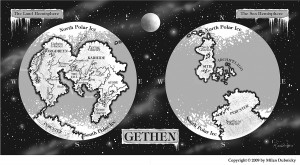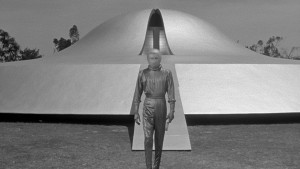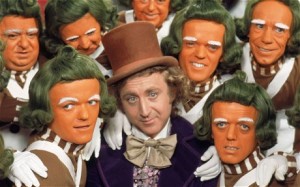So I just finished The Left Hand of Darkness yesterday, and gave myself the night to sleep on it. The more and more I think about it, to me it seems that this story is centered around Estraven and his character. I’ll go into my reasons further down below but to start I would like to reference the ending. We see that Genly takes the journal that Estraven has written in (and has at times narrated events to us) to the land of Estre where as Estraven explained previously that it would be interred with other information regarding Estraven’s life to be available to his son. Now looking back at the story we see that it has all been Genly’s recollection of events, we know this by certain passages alluding to the future “they were experts at starving themselves as I would come to know,” as if he’s telling his story (“I would very much like to hear that” -Lord of Estre pg. 324). This story is also supplemented with passages from Estraven’s journal which is in Genly’s possession but never Estraven’s direct recollection of events.
The one piece that I found strange are the tiny anecdotes throughout the book gathered from history and other sources. However, I think that these tales were compiled by Genly and others because they are massively important in understanding Estraven’s past, motives, and character. There were two specifically that had the most impact.
First we have the story of incest between two brothers. I would say this is the most important one because it taps something that the book only alludes to and that is that Estraven was required to kemmer with his brother Arek and produce a son (who we see at the end with the name Harth meaning it was Estraven’s son of the flesh, and he only ever sired sons with Ashe), we also get hints that their relationship was much more and they indeed tried to stay together, such as Genly’s (his new love) voice in mind speak was in “truth” the voice of Arek to Estraven (while on the ice much like the story), Estraven also mentions that he was promised to another before meeting Ashe and therefore cheapened their bond, it would also explain why Estraven was exiled from Handarratta in mirror of the story.
The second was the story of Estraven the Traitor (that one was handed to us), I like many of us was upset with the ambiguity of the Kings hedging answer when asked to lift the exile, and sadly it probably never will be as this story shows us the original Estraven betrayed his people by loving Therem Stok (both namesakes of our Estraven) however in doing so he saved his people and brought peace. He like our Estraven will always be remembered as a traitor.
Finally, while Genly and Estraven are on the Ice, Estraven reveals through a poem that “the left hand of darkness is light.” I believe Estraven to be the Left Hand of Darkness that this book is named after. Throughout the story he has done things that his people find most abhorrent. He holds on to an incestuous relationship with his brother, he is taken for a traitor and exiled, he disregards shifgrethor to warn/advise Genly, and also steals to keep him alive. I would also go so far as to add that he commits suicide at the border. Estraven showed how well he understood the political machinations of his world and knowing how desperate Tibe wanted him dead, he willing sacrificed himself to eliminate the threat to Genly’s mission (Tibe only resigned once he got word of his death). Suicide under any circumstance being the end all be all sin for Gethenians. However, all of these things so regarded as wrong and left and dark by his people were done to light their way into the new age within the Ekumen.



 necessary in adventure driven stories, but unnecessary in these situations. If envoys must be sent, Ai should have landed with his alien friends originally (not much of an invasion) and Klaatu should have shut off the electricity immediately. I understand that these galactic organizations want their planets to willingly comply with their requests, but they should really be looking out for their own as well. Sometimes, a little more power and intimidation is necessary to get things done, and ultimately leads to less violence. It’s hard to connect with a main character when the reader is convinced that his entire plight is unnecessary.
necessary in adventure driven stories, but unnecessary in these situations. If envoys must be sent, Ai should have landed with his alien friends originally (not much of an invasion) and Klaatu should have shut off the electricity immediately. I understand that these galactic organizations want their planets to willingly comply with their requests, but they should really be looking out for their own as well. Sometimes, a little more power and intimidation is necessary to get things done, and ultimately leads to less violence. It’s hard to connect with a main character when the reader is convinced that his entire plight is unnecessary.

